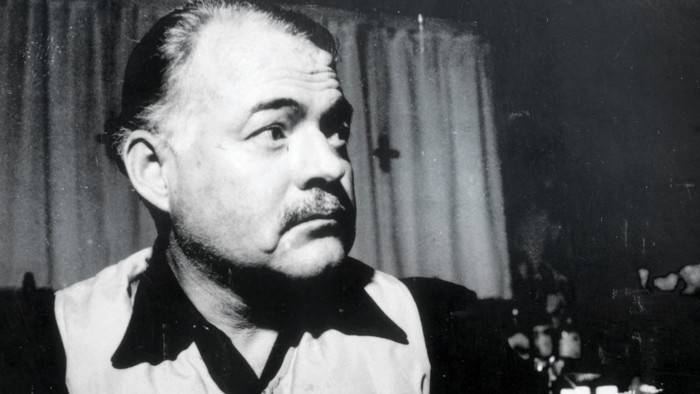The List: five novels about drinking

Simply sign up to the Life & Arts myFT Digest -- delivered directly to your inbox.
From mint juleps in The Great Gatsby (1925) to gin in John Cheever’s marvellously unsettling short story “The Swimmer” (1964), alcohol sloshes through literature, sometimes intoxicating and sometimes just plain toxic.
Some fictional drinkers are cool and in control - think Chandler’s hardboiled Philip Marlowe, sipping a gimlet in Victor’s Bar. Others are weak and wayward, alcohol sluicing them towards tragedy (a category which includes Charles R Jackson’s terrifying The Lost Weekend (1944) and Jack London’s John Barleycorn (1913) - both closely modelled on the authors’ own experiences with booze).
Enjoy these five magnificent drinking novels but never forget F Scott Fitzgerald’s unhappily prescient adage: “ First you take a drink, then the drink takes a drink, then the drink takes you.”
1. The Sun Also Rises (1926)
The debut novel by Ernest Hemingway is a testament to his love affair with Europe and the lifestyle of the bon vivant. In the course of his extended bender through France and Spain, Jake Barnes knocks back gallons of absinthe, champagne, brandy and Château Margaux. After all, who needs the ravishing Lady Brett when one has a flagon of vin de pays and a busload of Basque peasants to drink it with?
2. Good Morning, Midnight (1939)
This slim modernist tale by Jean Rhys, about an alcoholic woman alone and near-penniless in 1930s Paris, draws heavily on Rhys’s own troubles with the bottle. Claustrophobic, haunting and almost unbearably intimate, it uses the protagonist Sasha’s elliptically described lurches between drunkenness and sobriety to disorient and dazzle the reader.
3. Brideshead Revisited (1945)
Rereading his greatest novel, Evelyn Waugh commented that it seemed in retrospect a little gluttonous. Drinking has rarely been more glamorous than in Sebastian’s and Charles’s champagne-fuelled debauches in the Oxford countryside. But Waugh is beady on alcoholism, and Sebastian’s descent into red-faced incoherence remains acutely distressing.
4. Lucky Jim (1954)
Anyone who’s suffered through a hangover will be enraptured by Kingsley Amis’s virtuosic description of the morning after the night before, which ends with magisterial understatement: “He felt bad.” No hand-wringing or moralising here. Instead, a gleefully anarchic tale of pints downed and girls seduced: hilarious and, for all but the most politically correct, almost impossible to dislike.
5. Recovery (1973)
Published after the Pulitzer Prize-winning poet John Berryman’s suicide, Recovery is an unfinished and lightly fictionalised account of his stint in an alcohol treatment centre. There’s no alcohol per se but rather an extended and often bleakly funny riff on why people drink in the first place, and what a mess it can make of their life, however brilliant or gifted they might be.
Olivia Laing is the author of ‘The Trip to Echo Spring: Why Writers Drink’ (Canongate RRP£20)
Comments